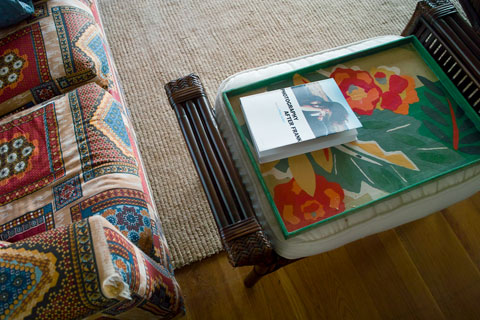
Summer reading, Photography After Frank, by Philip Gefter — © Brian Rose
”That’s not the way the world really works anymore,” he continued. ”We’re an empire now, and when we act, we create our own reality. And while you’re studying that reality — judiciously, as you will — we’ll act again, creating other new realities, which you can study too, and that’s how things will sort out. We’re history’s actors . . . and you, all of you, will be left to just study what we do.”
From an October 17, 2004, New York Times Magazine article by Ron Suskind, quoting an unnamed aide to George W. Bush
All the discussion these days about what is real in photography (now that Photoshop has largely replaced the darkroom) leaves me troubled, and I’ve been struggling to come up with a few comments that might add something to this already over debated issue. So, a few points.
In recent years we have seen a dramatic erosion in the validity of facts, and the value of language used to describe those facts. Torture is referred to as “enhanced interrogation,” an invasion resulting in tens of thousands of deaths is justified by 9/11, however specious, along with fictional weapons of mass destruction, and outright lies about people and issues are described, albeit satirically, as having “truthiness.“
At the same time, photographers, like the now infamous Edgar Martins–see here and here–have been going around asserting that facts are by definition mediated, everything is contingent, throwing around quotes from French philosophers, and generally saying there’s essentially no difference between one image and another–staged, manipulated, or merely framed in a camera.
The reason I am troubled by all this is because I see artists and photographers employing the same conceptual ideas about fact and reality as the politicians who have been, and are still, bending reality to suit their ends–after all, facts are mediated, and can be altered to create some larger truth, as one defines it. It’s not that photographers are at heart right wing conservatives. I suspect they are mostly liberals. But they are, unwittingly, playing the same mind games as the political shape shifters who “create their own reality.”
I recently read Animal Farm, the Orwell novel to my 10 year old son. It’s basically an allegory about communism, how it started out idealistically, and rapidly turned poisonous under an authoritarian leader. The original seven commandments of the movement were gradually altered, history was rewritten, and heroes defiled and erased–just as the Soviets air brushed Trotsky out of their photographs. My son was beside himself as facts were distorted piece by piece by Napolean the pig leader, and not knowing anything about Stalin, he exclaimed, he’s like George Bush!
I am not making a case for straight over staged or Photoshopped photography. (Nor do I think that photography will save us from tyrannny.) From the very beginning of the medium there have been those who used the camera to describe what they saw in front of them and others who sought to create staged realities, and there have always been those who looked inward as much as outward. The Pandora’s Box of Photoshop is here to stay, and we can debate the ethical and moral issues that arise ad nauseum. Yes, it is true that all depictions of reality are suspect. But once we acknowledge that fact, it becomes–at least for me–a concept that changes nothing. It’s like multiplying by one.
The market currently favors staged and manipulated imagery–artifice makes photography more like painting and sculpture, which get higher prices. We’ve been here before. But it does not change what I believe is the basic and enduring nature of photography–an intrinsic connection to real places, real structures, and real people, however dodgy the concept of real is. If we give up on the notion of transmitting reality then we run the risk of handing the world off to those who have no qualms about “making stuff up,” to quote Sarah Palin, whose allegiance is not to truth, but to “a higher calling.”
Nice parallel! Too bad nobody told the Bushies that creating their own reality goes by another name- fantasy. They sure were right about the… we'll just be left to study what they do part, though. We still are, and as you rightly pointed out- it's expanded well beyond that particualar admin.